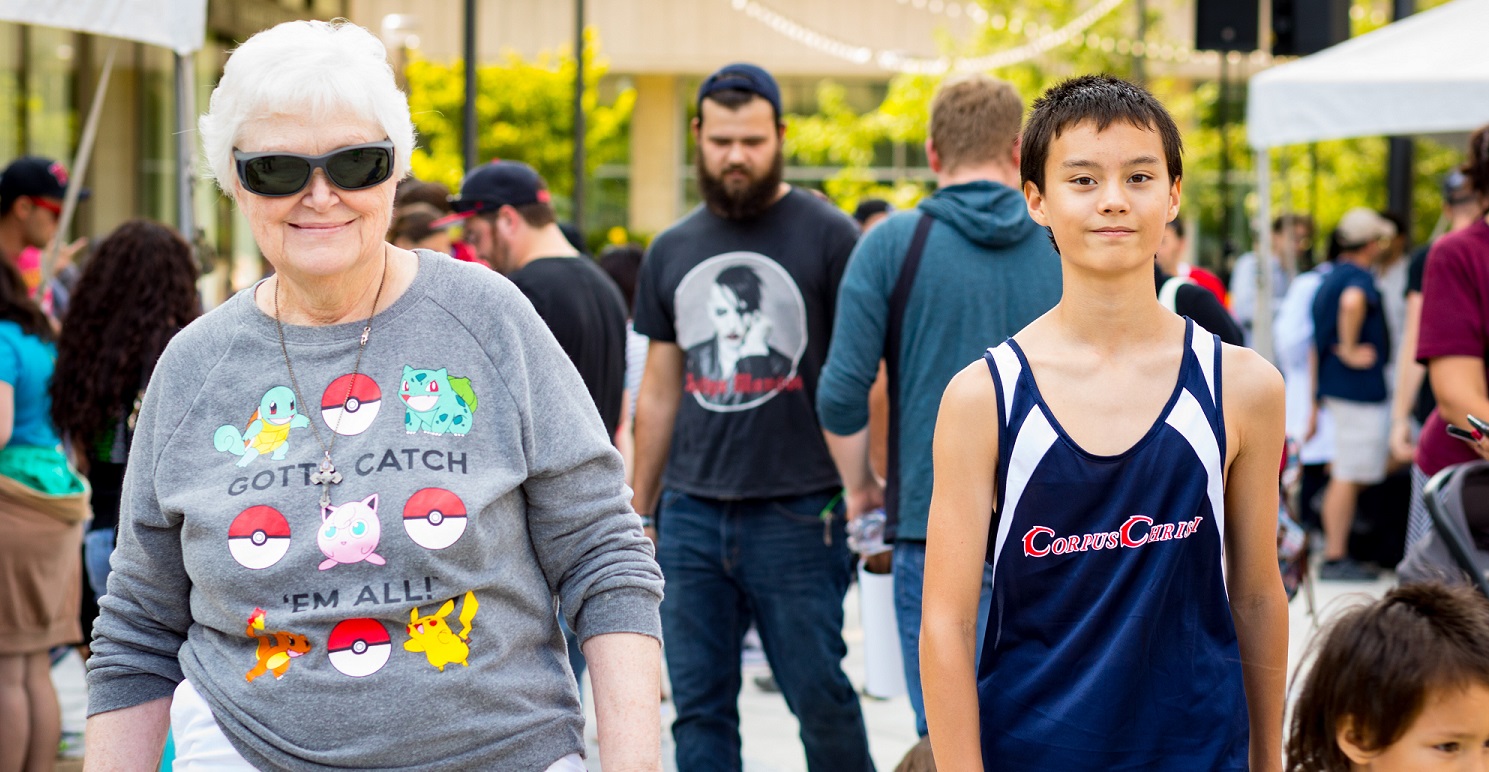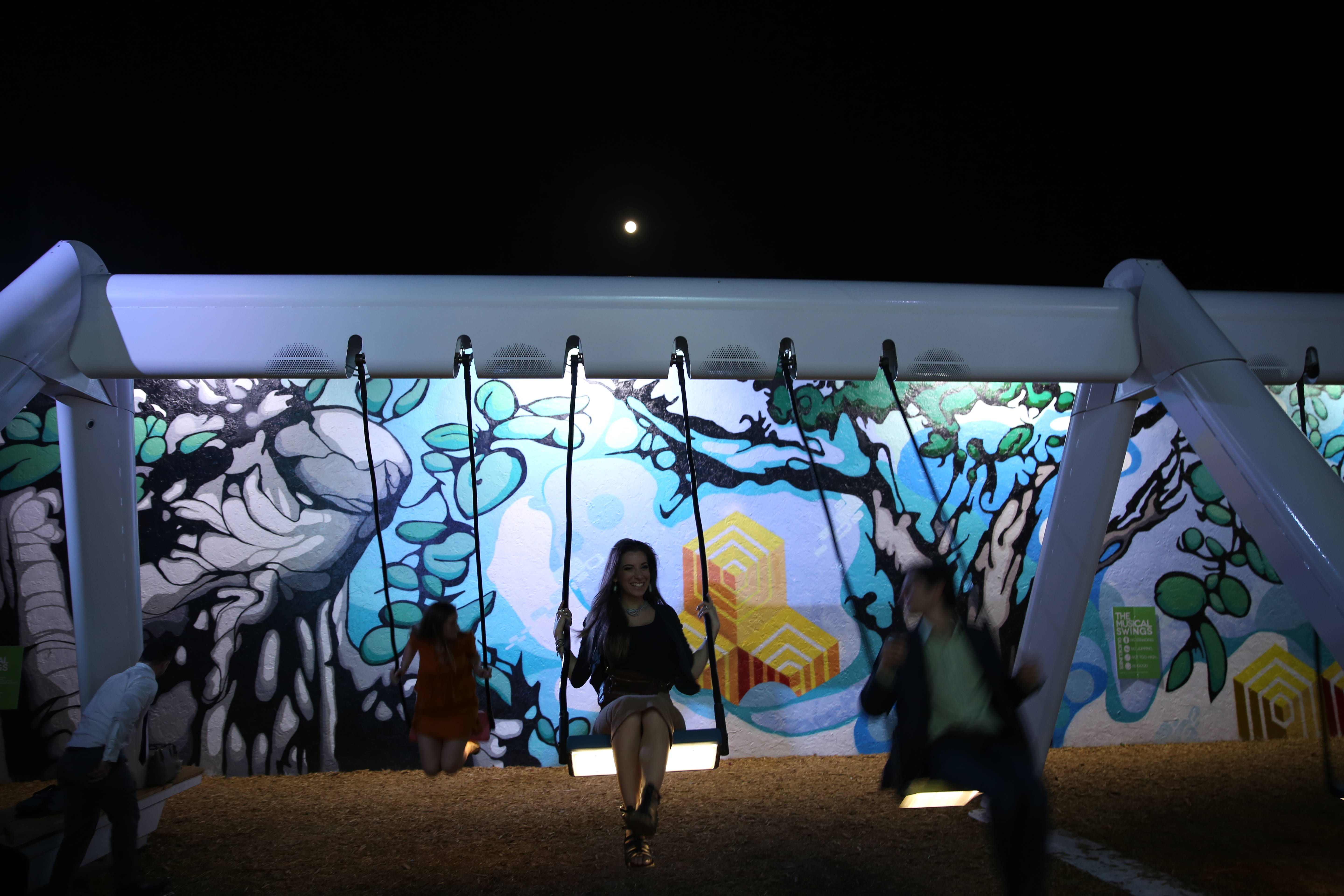To educate and train Detroit-based community development organizations to effectively participate in the development projects being led by the public and private sectors.
Program Area: Community Impact
To enhance the 2nd year of Macon’s Downtown Christmas Lights Extravaganza with a live, custom-scored, outdoor orchestral performance which will be synchronized to the Christmas Lights display for Opening Night of the Lights.
In Charlotte, residents are talking about their vision for creating fantastic public spaces. In the words of one resident, “We want a place for neighbors to come together that belongs to everyone!”
Such conversations have been sparked by the release of the Assembly: Civic Design Guidelines, a groundbreaking playbook for creating well-designed and well-maintained public spaces as a force for building trust and healing divisions in local communities. Published by the Center for Active Design (CfAD), the Assembly Guidelines capture four years of research and collaboration drawing from 200+ studies, 50+ cities and dozens of expert advisors.
The City of Charlotte has been a leading contributor for the Assembly Guidelines, and several local design and placemaking initiatives—from Can Do Signs to GovPorch—are featured in the publication. In celebration of this collaborative achievement, Charlotte hosted CfAD for “Making the Case for Great Neighborhood Spaces”—a series of events held June 28-30 as part of the Building Community speaker series. The Assembly Guidelines and the Building Community series are both supported by Knight Foundation.
For three days, the event series brought together a wide range of community members to talk about the connection between public spaces and civic life. CfAD gave a preview of the Assembly Guidelines, which offer evidence-based design and maintenance strategies for creating cities where people trust each other, have confidence in local institutions and actively work together to address local priorities.
From city and county staff to the private sector design and development community, from local neighborhood advocates to pop-up events involving members of the public, everyone shared their ideas for creating and enhancing beloved neighborhood spaces throughout the city.
The conversation couldn’t be more timely, as a recent report from the Trust for Public Land listed Charlotte at the very bottom of the pack in terms of park accessibility. According to Monica Holmes, planning coordinator and urban designer for the City of Charlotte, “While the ranking was certainly disappointing, it also served as a call to action. We know it’s time to work together to create great public spaces that connect all Charlotte residents.”
The local Assembly launch also coincided with Charlotte’s announcement of a new placemaking fund, which will provide opportunities for communities to beautify their own neighborhoods with small, quick projects.
The Assembly rollout in Charlotte illuminates three key lessons that other communities can apply:
- The design of public spaces offers an essential tool for fostering civic life. Community-driven design efforts offer an ideal platform for building trust, encouraging participation in public life, maximizing local stewardship and fostering local democracy. Assembly’s original research efforts found that simple, low-cost design interventions such as seating, greenery, lighting and positive messaging can make people feel significantly more welcome in public spaces.
- Neighborhood residents care deeply about their public spaces. Public spaces can offer a unique representation of local identity and create a sense of welcome for all community members. Charlotte’s successful neighborhood placemaking initiatives, such as Shamrock Gardens and the Embrace sculpture, clearly illustrate the potential of public spaces for bringing neighbors together.
- Cities should back up public space conversations with clear implementation opportunities. By pairing the Assembly rollout with an announcement of the neighborhood placemaking fund, Charlotte offered residents an inspiring path to build excitement around local implementation efforts.
We hope to continue to share these lessons widely so that many more people can benefit and create cities that belong to everyone.
Suzanne Nienaber is the partnerships director at the Center for Active Design.
-
Community Impact / Article
-
Community Impact / Article
-
Community Impact / Article
To support TechCongress’ efforts to educate legislators and congressional staff on the importance of science and technology by recruiting Congressional Innovation Fellows that represent a diverse set of views.
The Smart Civic Playbook is an interactive website and process toolkit for municipalities to create their own framework for a smart and civic city.
To support the expansion of the Museum’s signature fundraising event (All That Jazz) by moving to a larger downtown venue (Macon Coliseum), securing an internationally recognized performing artist and attracting a larger and more diverse audience.
To expand a promising model of engagement in public spaces through a series of facilitated dinner conversations—first piloted through the Knight Cities Challenge.
To complete the production of a documentary film about America’s public libraries and conduct outreach through a series of community conversations/screening events centered around the film and the issues it raises.
To grow use of GreenTRIP: a certification for new developments that encourages developers to reduce parking per unit and provide new residents with incentives to use alternative modes of transportation.
To support the next phase of development of Brick + Beam Detroit with full-time staff to share information among a community of building rehabbers.
To enhance public life at the University of Akron campus by activating public spaces to strengthen the connection to downtown.


